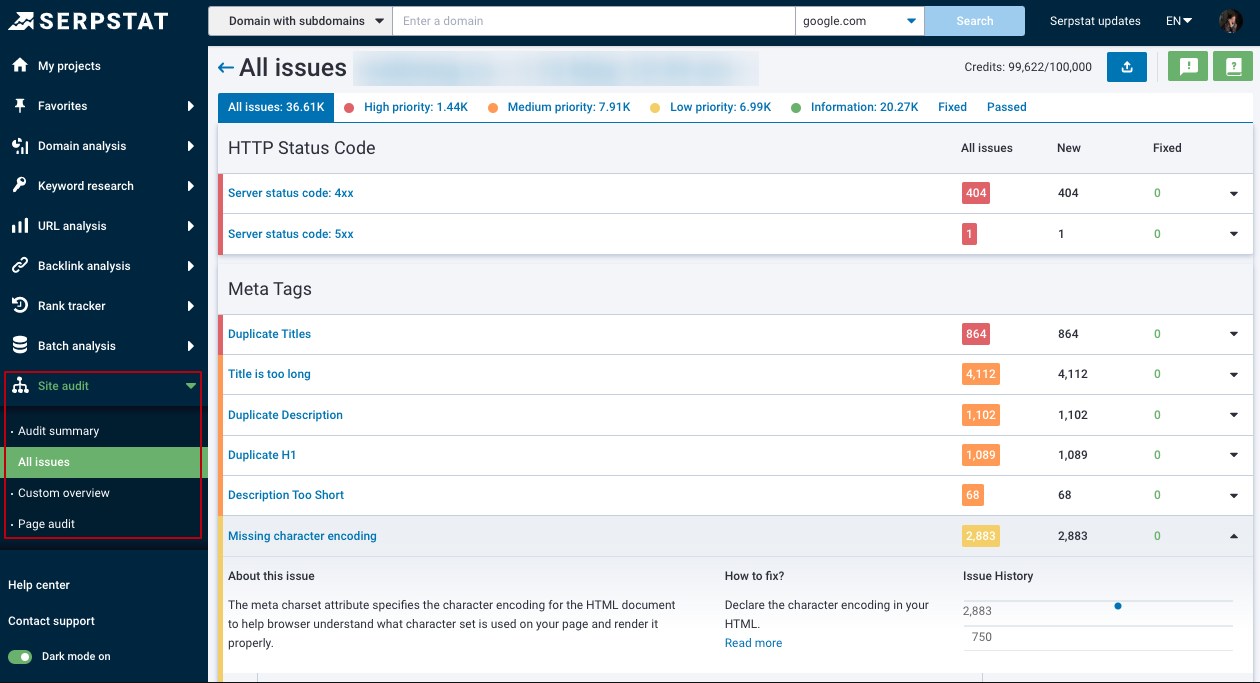Start Exploring Keyword Ideas
Use Serpstat to find the best keywords for your website
Where a Beginner Can Learn SEO In 2023: Ultimate Guide
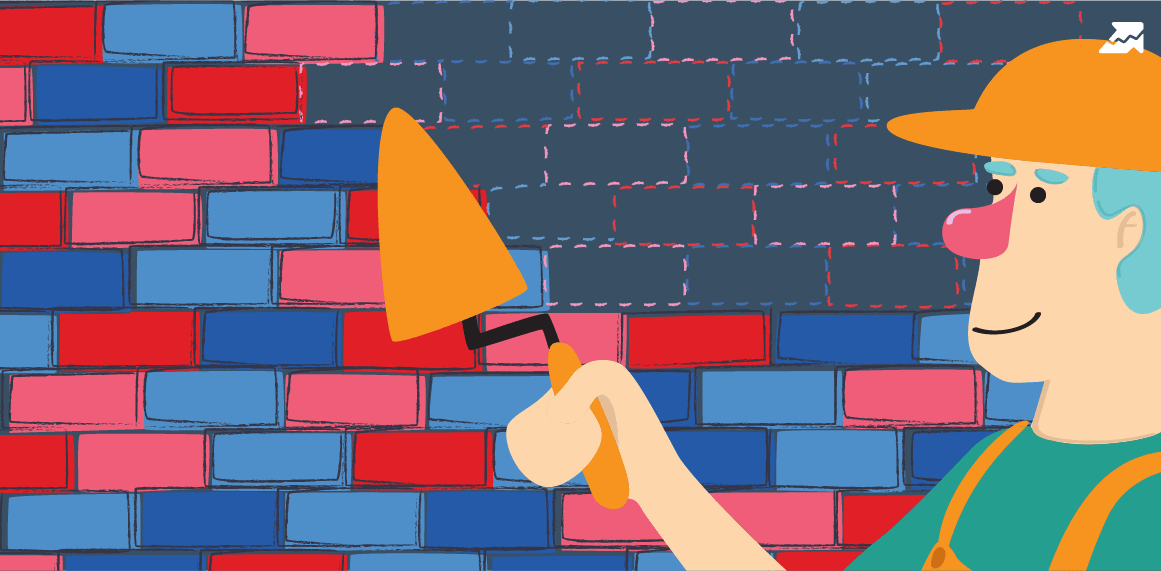
Overwhelming. Time-consuming. Contradictory. Too-technical. Outdated.
There is a lot to complicate this undertaking and let the assailing doubts win. But here's the best part: this article shares the tried and tested step-by-step guidelines on how to learn SEO and help you become an SEO expert in record time. You will gain access to some sources of education that will assist you in diving into the challenging world of SEO and coming off with flying colors fast and efficiently.
Today’s article will be supplemented by the comments of the following experts from our Twitter Chat:
at Hill Web Business
Step 2: Study books, guides, and academies
Step 3: Read SEO-focused blogs and forums
Step 4: Dive into webinars and educational videos
Step 5: Follow SEO gurus on Twitter
Step 6: Subscribe to educational newsletters
Step 7: Explore Quora and Reddit
Step 8: Find an internship
Stories from experts
Conclusion
Step 1: Explore paid education options
There are ample paid choices on the web (and if they are ranked as Top 5, they probably know how to do SEO). To start with: when would paid education actually be the right choice? Or even more importantly: what aspects should be taken on to tip the scales in favor of the paid option?
If you still have doubts, this step covers you and unveils the pros and cons of paid courses.
Advantages of paid courses
Disadvantages of paid courses
Step 2: Study books, guides, and academies
However, a more lasting time investment will be required to become a pro. You must comb through all the mentioned resources.
Books to get introduced to SEO
As you can see, each book on our list mentions the year of its edition. SEO changes instantly, and one year in the SEO universe could equal five years in ours. It takes time for the editorial team to republish a book. In the best-case scenario, a book gets updated once a year, which means some data has a high chance since then.
Webmaster guidelines from search engines
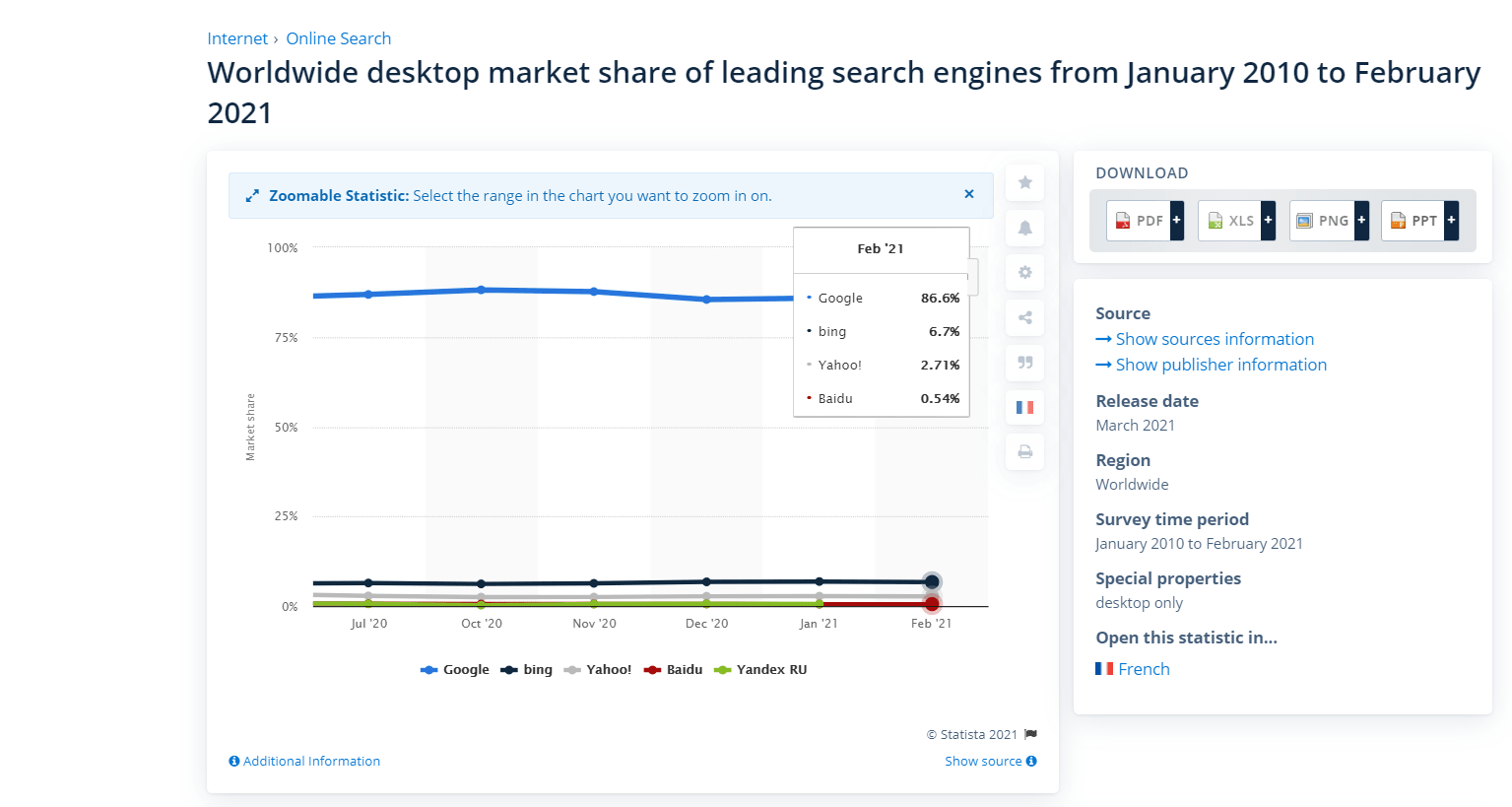
Serpstat Academy to learn the basics
The new free Serpstat Academy combines all learners need to plunge into the SEM and SEO worlds.
Without any budget expenditures, you'll be guided to:
- valuable insights into keywords and their research;
- unique case studies from niche professionals;
- all-in-one SEO platform to explore what powers such solutions can bring.
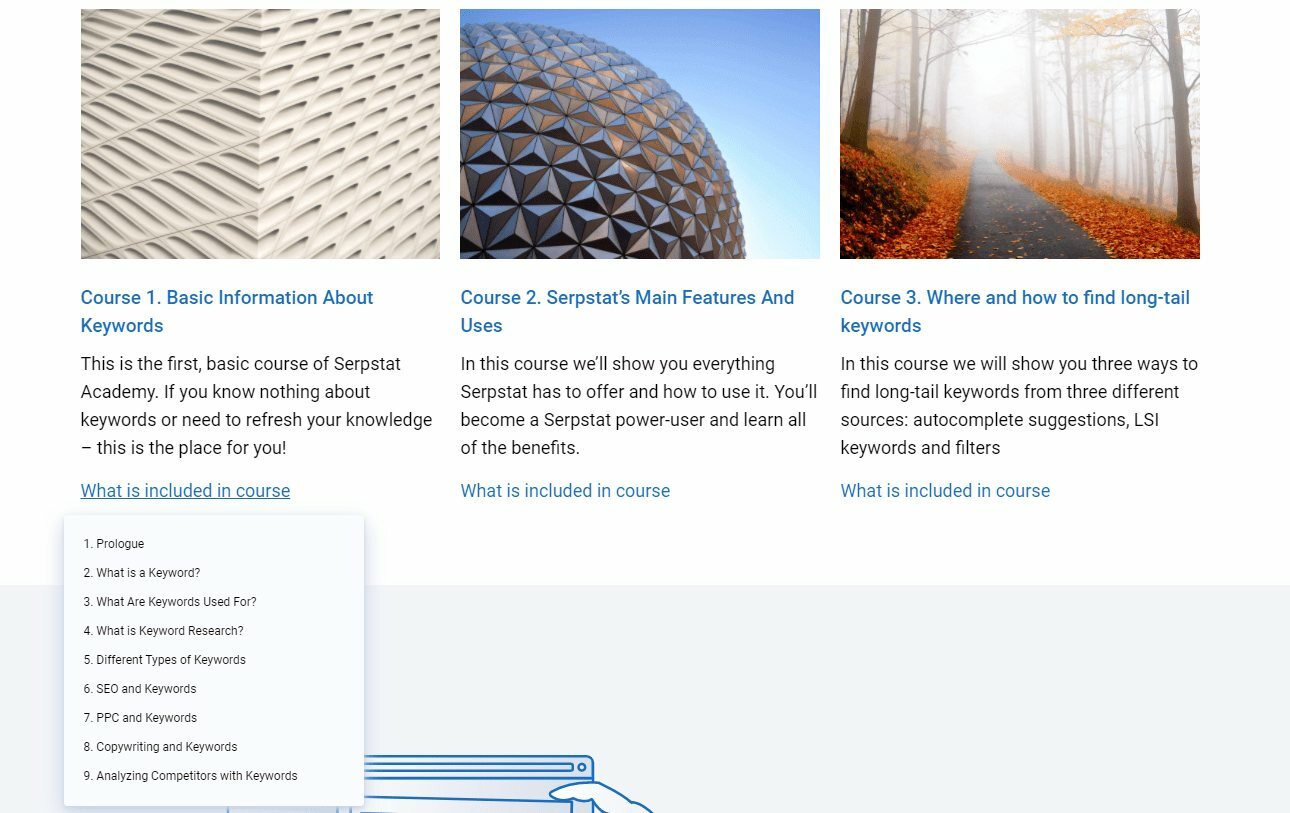
Step 3: Read SEO-focused blogs and forums
And to become and remain the best, you must keep your knowledge up-to-date. Educational use of blogs has been found effective. Doubtful?
Let's prove the point and leave no room for concerns.
Advantages of reading educational blogs
However, if you opt for a resource that is kept updated by the niche experts, it will bring you the following set of benefits:
Conversely, if you do trust non-professionals, the results can be deplorable.
Disadvantages of reading educational blogs
- Google now offers an SEO course;
- @GregGifford offers great courses;
- @aleyda hosts #SEOFOMO;
- @serpstat offers an SEO Knowledge Quiz.
Best blogs to learn SEO fast
Notably, each blog author is a well-recognized niche professional that uncovers insider and credible insights on a chosen topic. Serpstat offers a distinct selection of use cases and how-to guides on the blog.
Step 4: Dive into webinars and educational videos
Without sacrificing quality, educational videos have caught up quickly thanks to their convenience, simplified perception of information, affordability, relevancy, and timeliness of the offered content.
Importantly, they bring the ability to interact with niche experts and often enable the learner to receive Continuing Education Credits (CEUs). It helps the students get started as SEO specialists and instantly stay on top of the field.
But what channels are worth following closely?
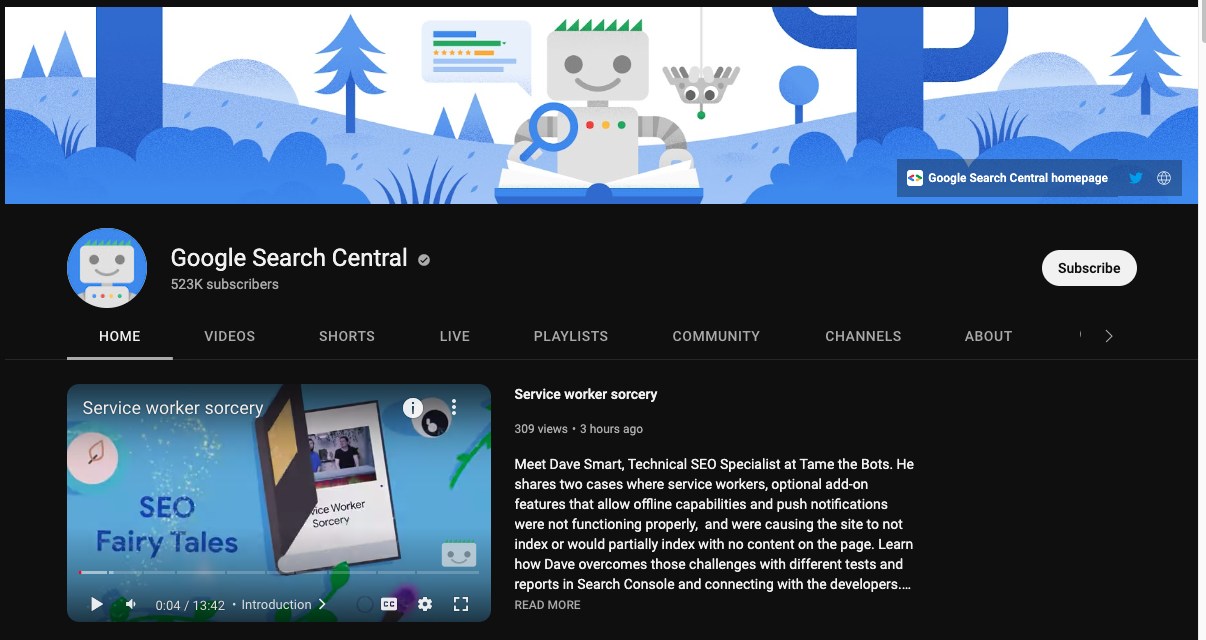
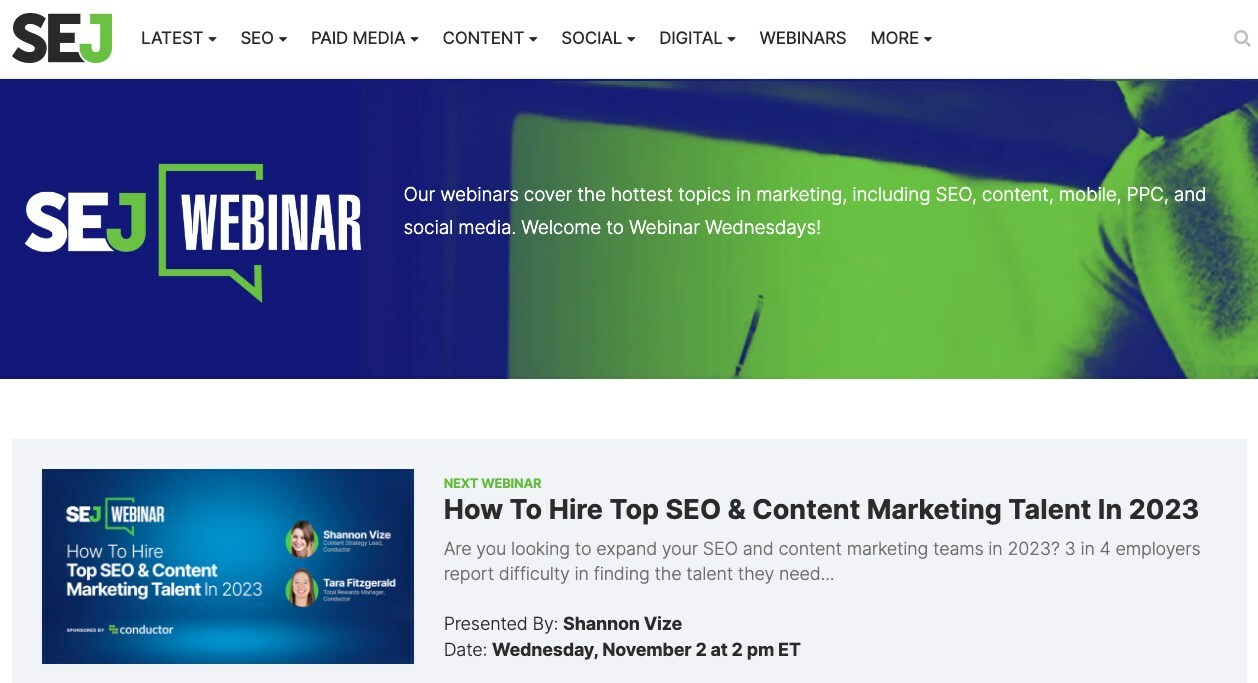
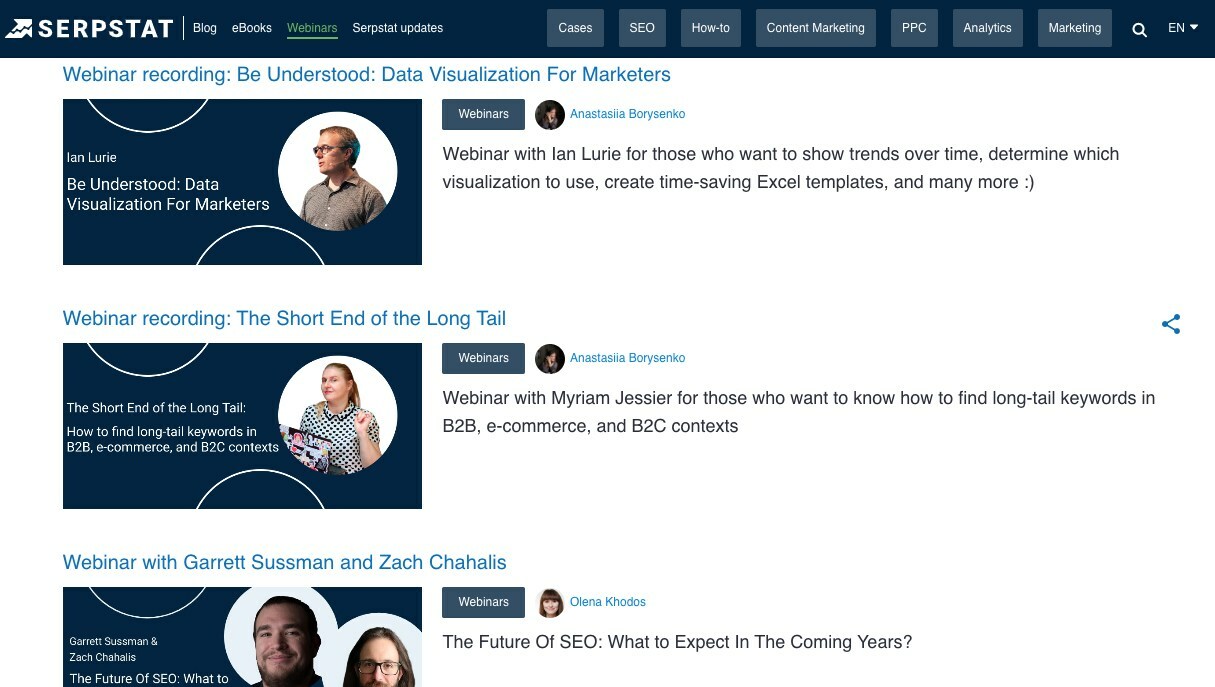
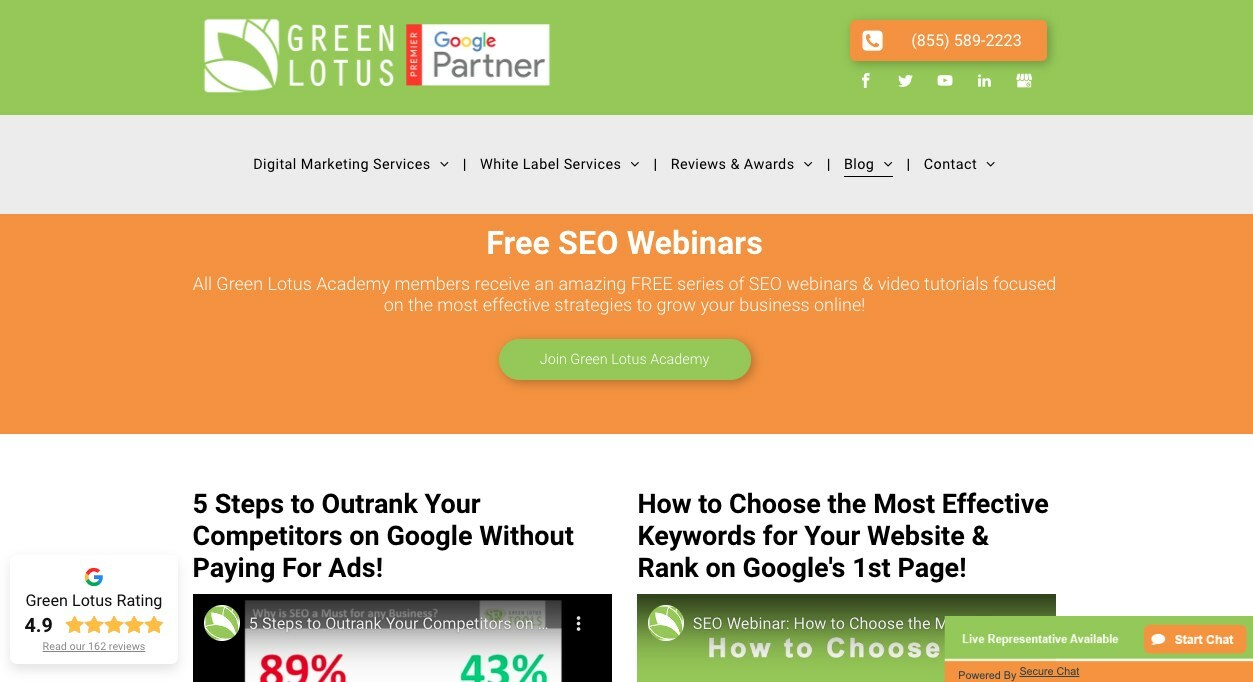
The absolute first thing you should do is set up your own website and test everything you learn using that website. You won't understand how SEO works without building and destroying a few websites at least!
There are a lot of free courses that teach you how to set up a website from scratch. Just follow one/two courses and set up some websites. WordPress is a good start. Start with easy keywords.
- Set yourself challenges.
- Do X on a dummy/test site (this could be improving rankings, changing relevance, implementing speed improvements, etc.).
- Try to analyze competitors, brands, or some fancy SERP feature, and then try to replicate it.
Step 5: Follow SEO gurus on Twitter
Building relationships with Twitter influencers will help you uplift your knowledge and SEO skills and help you interact with the best-of-the-breed data that these personas share.
Our list of leading SEO celebrities to follow:
@darth_na;
@josephskahn;
@joeytrend;
@JonasSickler;
@RemcoTensen;
@TaylorMurchison;
@myriamjessier.
You're welcomed to Serpstat Twitter Chat!
Join #serpstat_chat to discuss the questions of practical SEO, trends, and updates with SEO experts. We gather every Thursday at 2 pm ET | 11 am PT on our Twitter channel by hashtag #serpstat_chat.
Step 6: Subscribe to educational newsletters
Subscribe to an educational newsletter on SEO-related topics, and the valuable data will be delivered straight to your inbox.
Many strive to forward the most valuable information. However, often, the promotional content outweighs the value of a letter. We've shortlisted the most outstanding newsletters that bring actual value and are worth subscribing to:
Step 7: Explore Quora and Reddit
On the one hand, people use these platforms to ask questions, answer them or get answers, and follow threads of their interest. On the other hand, these questions are gold when doing SEO and content marketing (but that's probably another topic).
A competitor runs ads on my brand name ...
New Google Analytics setup
How do you source your clients?
As SEO changes occur, the users tend to adapt and work out a way out. Discussion threads are a perfect means to involve networking when facing new SEO challenges and needing a solution.
SEO communities come in handy. Make sure to follow these threads, discussions, and communities, as some of them are chosen by over 1 million people:
- Build a portfolio.
- Show that you can do the work.
- Get pages ranking for various things.
- Tackle problems like Canonicals, Redirects, etc.
- Then you can go for agencies, cherry-pick some potential clients, or reach out to businesses you like.
Step 8: Find an internship
Nevertheless, you should certainly consider an internship with a company where more professional SEO experts can guide you through the processes and share their experience-proven knowledge.

Moreover, SEO internships are an excellent means to learn SEO, free and paid, and polish your theoretical knowledge to perfection while getting tangible results in improved rankings and happy customers.
It's very convenient to have all the reports in one place:
Stories from experts
I joined a forum for small business and website promotion, which evolved into a forum on SEO and Usability, and ended up as an administrator there, which hosted a number of SEOs from who I learned a lot. I learned more about CSS and HTML and gave lots of feedback to people in the Website hospital of that forum, where I ended up learning about how to audit sites and ask their owners questions about those sites. I had learned to use Xenu Link Sleuth to learn about site architecture and link consistency and adopted Screaming Frog to later do those things.
I also look at resources from Google — Blog posts and the Webmaster Central forum, the Support pages, and the Google Developer's pages, which are worth learning from as well.
The W3C Schema Mailing list is also worth subscribing to. I do not add too many emails to my account and include information about new updates and releases.
At absolute each week we have multiple in-house training courses across multi-disciplines, so everyone has strong all-round knowledge. We're also big believers in trialing experiments where possible too.
I have applied to an agency from Turkey, I started as an intern. One day, luckily, I have clicked on Bill Slawski's previous blog, seobythesea.com from a SERP. From there, I have explored Shaun Anderson's hobo-web.co.uk.
Since then, I read from them. In 2019, I have started to learn Python, thanks to Hamlet Batista. And, for the last 3 years, I listen to Cindy Krum's and Marie Haynes' webinars, and podcasts.
I even read everything that Rand Fishkin has written, including the Art of SEO. I learned SEO by reading 4-5 hours every day. And, I protect this habit. For instance, today, when I was at the gym (again), I have listened, Bill Slawski's latest Edge of the Web Radio podcast, then I listened to Google's latest Search Off the Record Podcast Episode.
Also, groups like Areej AbuAli's Women in Tech SEO and Aleyda Solís's Learningseo.io didn't exist before. Incredible resources.
Conclusion
- Statements from representatives of the search engines. This can come from their official blogs, unofficial personal blogs, comments in interviews by other SEOs, things they say at conferences, and personal face-to-face meetings at networking events.
- Experiments, testing, and observations. Not all statements by SEOs may be trustworthy, and not all experiments could be conducted correctly, but that is up to you to figure out and see who to trust and who not to trust. Not everyone may draw the same conclusions from the observed data.
- Sharing of knowledge with other SEOs. This happens every day on online forums and social media groups.
- Basic on-the-job training. I know a lot of SEOs learned the most this way, by being employed at a company doing SEO and learning from some mentor in the company where all the first 3 I mentioned became reference resources. Still, the actual how-to is at their job.
- Enrolling in some training programs. Most of these SEO schools are online. There are good ones, and there are better ones. Pay attention to the teacher and their credibility, experience, and reputation. And decide from there if you want to enroll in an online course.
Improving website traffic is a severe endeavor, and our guide on learning SEO in 2023 will help you accomplish it front-to-back.
We've done our best to cover all the essential sources of information that can assist you in progressing from a beginner to an SEO Pro, thus achieving your online business objectives.
Each block of this guide provides links to insider resources. Thus, you are welcome to study at your own pace and return to the required block when necessary. Just bookmark this guide for easy and fast access!
As you master the science behind SEO, don't be afraid of making mistakes and getting confused. Don't give up! Our team is always ready to offer a friendly hand to help you get things straight.
Learn, succeed, and share your experiences in this group: discuss workflows, network with other Serpstatmates, and contact our dedicated customer support representatives.
Get the latest product updates and industry news here!
Looking forward to interaction — we’re sure you’ll love our little community as much as we do :)
Speed up your search marketing growth with Serpstat!
Keyword and backlink opportunities, competitors' online strategy, daily rankings and SEO-related issues.
A pack of tools for reducing your time on SEO tasks.
Discover More SEO Tools
Backlink Cheсker
Backlinks checking for any site. Increase the power of your backlink profile
API for SEO
Search big data and get results using SEO API
Competitor Website Analytics
Complete analysis of competitors' websites for SEO and PPC
Keyword Rank Checker
Google Keyword Rankings Checker - gain valuable insights into your website's search engine rankings
Recommended posts
Cases, life hacks, researches, and useful articles
Don’t you have time to follow the news? No worries! Our editor will choose articles that will definitely help you with your work. Join our cozy community :)
By clicking the button, you agree to our privacy policy.





